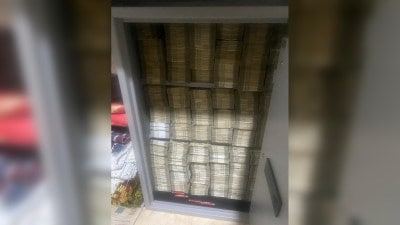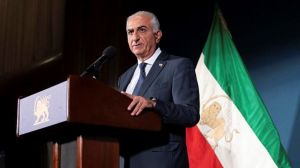Profiles in courage
Long after the bodies stop arriving at airports, long after guns stop booming in the hills, long after the cordite-laced snow melts in Ka...

Long after the bodies stop arriving at airports, long after guns stop booming in the hills, long after the cordite-laced snow melts in Kargil, there are painful memories that will stay. Etched in our hearts, there will remain haunting pictures of young widows in white and puzzled children waiting for a father who will not return. Learning to live with loss is a price they have paid for us.
I know I will never forget Sepoy Ranjit Singh of 12 Mahar, in his crumpled combat dress, coming straight from the battlefield, to tell the grieving parents of Naik Mukesh Rathod how their son was lost. With folded hands and tear-filled eyes, he begged forgiveness for bringing back his friend8217;s ashes from Mushkoh valley. Nor, the gentle tribals of beautiful Kanthariya, an unknown village in Sabarkantha, standing ramrod straight in their pyjamas and dhotis, right elbows bent, palms touching the foreheads, joining the army jawans in a touching military salute to the burning pyre of Sepoy Shailesh Ninama, 1 Bihar.Killed in Batalik.
The unveiled face of a young soldier, barely 22, a wad of cotton covering the gunshot wound in his temple, laid out on the same stringed cot where he must have dreamt many dreams, flashes in front of my eyes every night. The gentle moaning of his heartbroken mother, as she sat by his bedside, one last time, fills the room. The brave tale of an injured soldier whose body was found with knees and elbows completely scraped, in unsuccessful attempts to climb out of a 150-ft gorge where he had fallen, narrates itself again. And again. His courage, as he tried to fight for his life, just like he had fought for ours, stings the eye.
Dancing flames playing patterns on the Tricolour, besides the body of one more brave soldier who burns quietly; tea stall vendors and street urchins scampering wildly across highways to stop the truck carrying a martyr8217;s body; bouquets scattered to shower coffins with rose petals; thousands accompanying a hero on his last journey. Chants of Amar Raho8216;, oldwomen in ragged saris standing in front of unknown caskets with folded hands and wet eyes. Proud and pained. Haven8217;t we all felt the same?
The realisation that we are one country, one people, has never come across as strongly as it does now. These soldiers who are losing their lives in the call of duty are not strangers we never met before. When the gunshot rang out in the cold night in Kargil, it pierced our skin. He who died was a part of us. This is our blood that has stained the snow on those icy peaks; the enemy who was mutilating our jawan, unarmed and unprotected, has cut deep into us all. The pain that he felt then, we feel now. And then the realisation comes. Thousands of miles away, surrounded by cold-blooded killers, in an enemy bunker, he was never alone.
Every man, woman and child who stands by the wayside, as yet another body is brought in, feels the loss. When a young boy from the crowd says, quot;I will go in his placequot;, every heart sw-ells with pride. When lips move spontaneously to VandeMataram, it is our song that plays.
Courage, like fear, is infectious. The young man in uniform who steeled his nerve to venture barefoot onto bare rock faces on moonlit nights, has rubbed some of that pluck on us all. Since everyone cannot wield a smoking gun on the Line of Control, we have wiped our tears, pledged new sons to the Army, sung songs at funerals, walked miles with pallbearers, watched body after body arrive at airports, set emotions aside to file reports before deadlines.
This war, that was thrust on us, has taken away people we love. The soldier who walked into enemy fire will not return. But a grateful nation shall remember his sacrifice. We have shared the loss, we will shoulder the responsibility. While a treacherous neighbour refuses to even accept its dead, we will give our disabled soldiers and shattered families a chance to live again.
- 01
- 02
- 03
- 04
- 05































